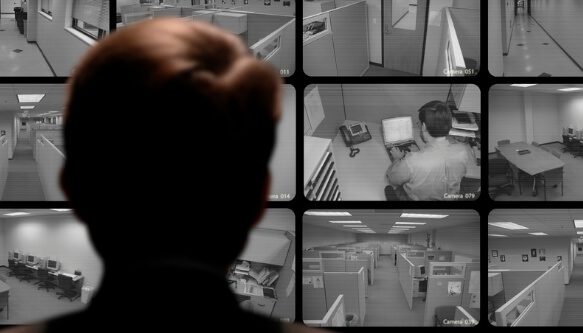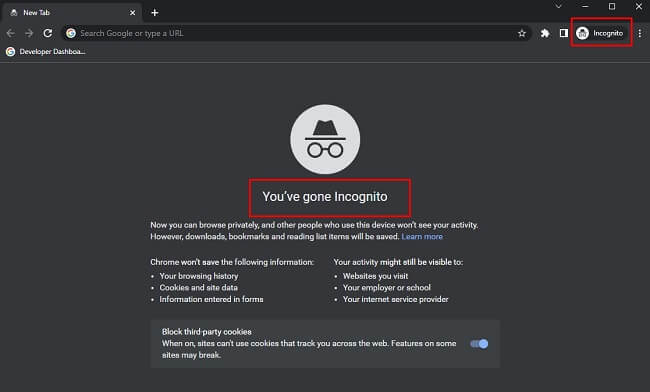A lot has changed in this internet era. Just a few years ago, businesses and organizations hiring people to sit at home and monitor their employees’ activity would have seemed impossible. But today, it is a reality. However, most employees keep asking, can employer monitor home network?
Your employer can monitor your home network as long as you use company equipment for work-related activities. So, suppose you are using a private computer at home for other activities apart from work. In that case, that computer is still company property, and any activities on it can be monitored. The same goes for company-issued smartphones and tablets.
Some companies do this by installing software on their employees’ devices that monitors the device’s Internet connection to see what sites are visited. Of course, this isn’t always legal, but as long as your employer isn’t violating any copyright laws, they can do whatever they want to monitor the traffic coming into their network.
If your company has a policy about using personal devices for work, make sure you read that policy to understand how to behave to avoid getting fired.
Navigation of content:
- Your employer has all legal rights to monitor your home network as long as you use the company network and device.
- Some organizations support employees and fight against the invasion of privacy from employers.
- You can restrict your employer’s access to the device you are using through some means, even when you are using the company network.
Can Employer Monitor Home Network?
While you may think this act is a form of invading your privacy, your employer thus has every right to monitor your home network as long as you are using the company’s property.

An employer can monitor your home network to see if you are engaged in illegal activity, such as uploading copyrighted material or accessing restricted websites. If the workplace has a clear policy against using certain kinds of websites, then you must adhere to it.
If you as an employee use a work computer or account to access those websites, then the employer may be within their rights to reprimand or even fire them. However, if you are viewing those websites from your devices and accounts, they may be violating your privacy.
In addition, all employers have policies about the personal devices, software, equipment, and network connections you use to access work-related content. So, before using any such device or system, you should review your company’s policies.
Concerning that, most companies limit the types of personal devices you can use to access their networks and the work you do from those devices. Some companies also require you to use their systems to access work content, and some might monitor your activities.
Therefore, if you are not sure what type of monitoring is used in your workplace, talk to your human resources department before using any personal device or system in a work capacity.
Why Would an Employer Want to Monitor an Employee?
The use of employee monitoring is becoming increasingly common across companies of all sizes, with many companies now using employee monitoring software as part of their overall strategy for ensuring business continuity.

Therefore, an employer might want to monitor their employees for several reasons, and below are some important reasons such as:
- Finding out whether employees are working when they say they are working as they claim to be doing. By monitoring employee computers, an employer can ensure that the work assigned is being completed.
- Finding out whether employees are following company policy by not using company resources for personal use. This can help with theft prevention, fraud detection, and unauthorized disclosure of confidential information.
- Ensuring that employees are using their time at work for the type of activity required by their job. For example, social media accounts have been monitored, and personal calls or emails that could be related to work but aren’t necessary to complete job duties.
- keeping a close tab on the business to ensure that their business is running well. An employer can monitor an employee in different ways to keep a close eye on employee productivity and the quality of work produced.
- An employer may also want to monitor an employee’s activity if they take a long time on certain tasks. This could be for reasons other than just laziness or procrastination, as there could be poor training or inadequate resources that hinder the employee’s ability to work efficiently.
- Also, an employer might monitor an employee if they have been caught stealing from the company or engaging in other illegal activities at work.
In this case, the employer is not only trying to protect themselves and their company’s assets; they are also attempting to prevent further damage by stopping the employee before they can do anything else wrong.
Read More: How Many Network Switches Can Be Connected to a Router?
How Do Employers Monitor Their Employees?
If you want to keep your employees from goofing off on the job and don’t want them to waste company time, you need to monitor their activities. Here are ways your employer see home network activity.
Keep Track of What They Type on The Computer.
Through the use of computer monitoring software or a keylogger, an employer can easily monitor the employee’s activity on the company device. It goes all the way to monitor what the employee is typing.

In that way, the employer monitors their employees by capturing the use of keystrokes on the keyboard and matching that with other data on the computer to determine if the employee is legitimately working or not.
Record Internet Activity
Suppose you are concerned about your employees’ computer use or access to inappropriate websites. In that case, one thing you can do to protect your company is installing IT resource monitoring software on their computers.
You will be able to see what they are accessing online and limit their time on the computer depending on network usage.
Using a Webcam to Monitor the Activities
Having a webcam is an advantage. It is possibly the best way to monitor what your employees are doing. The webcam allows employers to monitor their employees remotely via computer or use the camera to record and store evidence of fraud or theft.

Some devices have motion detection, so when it senses motion in its field of view, the webcam can automatically snap a photo of whoever lurks nearby.
Taking Screenshots
Taking screenshots of your computer screen is one way for employers to check their employees’ productivity. Depending on your preference, you can take a screenshot of your whole screen or just a selected portion of it.
Monitoring Emails
The easiest way to monitor employees’ email is to simply set up a web proxy. All emails would need to pass through that ‘proxy’ before being sent or received. This means that you could look at all the mail going in and out of the company.
Different Laws for Employee Monitoring
If you run a business or company, you must be aware of the laws regarding employee monitoring. The laws for employee monitoring vary from state to state and country to country, so make sure you are following your local regulations.
Employee Monitoring Pursuant to Federal Law
There is a federal law guiding the act of monitoring employee’s activity on a company’s device, and this law is known as the electronic communications privacy act, which came to place in the year 1986 [ECPA]
Wiretap ACT
The wiretap act of the ECPA is also known as Title I. This law proves it is illegal for you to intentionally intercept, disclose, or acquire oral or electronic communication.
Stored communication Act [SCA]
This is also popularly known as Title II. The law operates in a way that helps to maintain and protect the privacy of stored electronic information.
Pen registers and trace or trace
This law guides the act of recording information such as the dialed number or from where a telephone call came from.
From the look of things regarding the law, you will assume the ECPA is against the act of employee monitoring, but in the real sense of it, the ECPA has some exceptions, and they are:
The employer can monitor their employees’ oral and electronic communication as long as they have the legal right to do so.
Also, an employer can monitor the communication of the employee as long as the employee permits to do so.
In addition, the SCA has no protection over the privacy of stored information if, by any chance, the information is on the employers’ servers.
When it comes to keystroke logging, the ECPA has a limitation on what to do regarding employee monitoring, but in some states, the employees have some privacy protections.
Employee Monitoring Pursuant to State Law
Still, on monitoring employee activity, some states do not support employers monitoring the activity of their employees.
Some states like California, Maryland, and Illinois all have two-party or all consent law that allows telephone call or electronic communication monitoring.
While few states, such as Connecticut and Delaware, have a law that requires every employer to give the right notice to employers before monitoring anything. Also, this may not be effective if the employee is working from home.
Other Laws Potentially Applicable To Employment Monitoring
Just as a body is protecting the rights of employers, there is a body known as the National Labor Relations Act [NLRA], which takes the major role of protecting the right of employees. The body’s board concludes that the monitoring of employees and their activity is an unfair practice.
Also, employee privacy can be respected under the attorney-client privilege, which protects the employee’s communication even if the employee is using the employer’s devices.
For example, if an employee emails while at work using her email account to reach out to her attorney, such will be protected from her employers. However, if the employee uses the employer’s email account, such will not be protected.
How To Hide Internet Activities from An Employer?
If you are on the lookout for ways to hide your internet activities from an employer, there is a strong possibility that you can do that if you follow our suggestions below.
Use Your Personal Home Network
The networks you use should be separate. For example, your home network would be for your personal stuff, and your work network is where all your company data lives. To prevent interaction between the two, you will want to connect to your home personal network. You should rest assured that your activity remains safe and known to you alone.
Use a Guest Network
A guest network is a great way to keep your privacy while using the Wi-Fi at a friend’s house or your office. But, of course, the best way to stay safe on any wireless network is to keep your personal information.
To do this, you can follow the step below:
- Log in as an admin to the Wi-Fi network
- You should host a guest on the network by turning on the option
- Choose a different SSID, and you can rename it as a guest for easy identification
- Keep the home network SSID idle while you broadcast the guest network
- Log in to the new guest network, and you should forget the old network
- This way, any activity on the guest network will be secured
Use Incognito Browser
The best way to hide your internet activities from an employer is by using a private browser called incognito. It will erase all the history, cookies, and other information revealing your browsing, which is the same as if you did not use the internet.

It will be quite hard to save or download a file in private mode, but you can search whatever you want and visit any website anonymously.
To use this method, just follow the step below:
- Turn on the hotspot on your mobile device
- Locate the hotspot network through your computer Wi-fi
- Connect to the network, and you can do all you can
Use VPN
A private VPN is an all-in-one solution. It hides your online activities from anyone trying to monitor your Internet connection. If you are worried about your internet activity at work being monitored by your employer, then don’t. With a private VPN, all of your traffic is encrypted, and it will look as if you aren’t doing anything.
Conclusion
Workplace monitoring policies often raise ethical questions, such as can employer monitor home network? Many employers are likely to participate in this activity regardless of whether or not they have formal policies in place.
Your employer has the right to monitor your activity at home if you are using the company network or device. If you’d like to keep your habits out of the office, you should follow some basic strategies like checking your email at home, blocking auto-logging sites like Facebook and Twitter, and setting up a different browser for these activities altogether.
